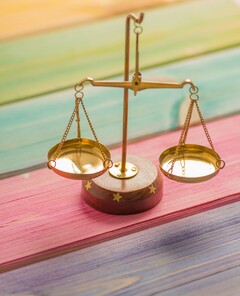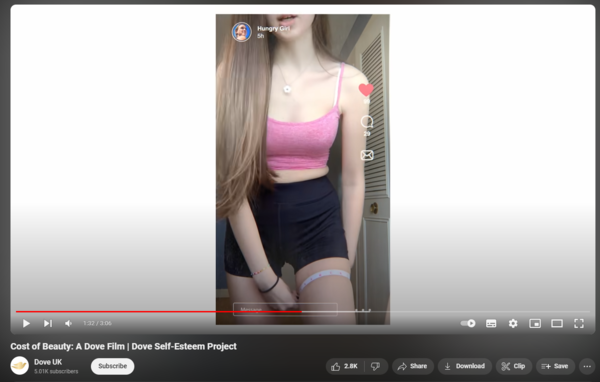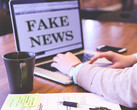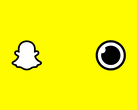Social media is a divisive and extremely broad topic. Whether you are a creator or business who leverages social media to make money, a fundraiser reaching out to communities, a political candidate, a parent trying to guide their children safely through its complexities or just someone who wants to stay in touch with friends, there are always pros and cons. Social media can reunite families, spark a revolution and , topple governments. Florida has just banned it for kids under 16 and it has been linked to a string of mental health issues, yet social media continues to play a significant role in our societies and doesn't show any signs of changing.
In this article we pitch two of our writers to argue one side and the other. Do you agree? Is social media fine the way it is, or does it do more harm than good? What changes (if any) would you like to see to your favourite social network?
Sergey:
So. Why don't we start by defining what we mean when we say "social media". Facebook sure is on the list. What about TikTok? Discord? WhatsApp, SnapChat?
David:
Yea sure..... that in itself is tricky. The dictionary definition is:"websites and applications that enable users to create and share content or to participate in social networking".
I would probably say focusing on platforms that enable users to create and share content. That seems to be the area that has the most impact, on users at least.
Sergey:
TikTok and Discord fit that description I guess, WhatsApp - no, probably not.
So, the first argument "for". With proliferation of social media, we can now exchange thoughts and feelings with people who are currently thousands of kilometers away from us. A conventional letter takes several days to several weeks to arrive; DMs on the other hands take just a second, reducing loneliness, helping people who are for some reason separated from each other maintain that connection, that thread that's holding them together.
David:
But social media isn't about keeping in touch. Like you say, a DM can do that. Instagram, Tik Tok, Facebook, Snapchat all seems to be about turning us into narcissists. Bragging about where we went on holiday and how good the food we eat is.
Sergey:
Quite a few people use social media for bragging about what they perceive as their achievements, yes, that is certainly true. But there are so many other uses for these websites and platforms including sharing artworks. The euphoric_cakes Instagram profile would be a good example of what I mean; these people do not just make cakes that taste good - they make cakes that both look and taste good. They inspire a new generation of bakers by posting these pictures. Watching their feed is like visiting an art exhibition. How can things like art and inspiration be bad for the humankind?
David:
Sure, inspiration is great when the topic is benign, but what about the proliferation of kids with eating disorders and body image problems because someone on Tik Tok tells them that they have to look a particular way to be popular. Megarexia (the opposite of Anorexia) is now an issue because kids want to look as jacked as the "influencers" they see on Instagram. Adults should know better, but I'd question whether they do. I suppose this also relates to giving people a voice that shouldn't necessarily have one. Social media allows anyone and everyone to post whatever they want - everyone is entitled to freedom of speech, but if you're touting hate crimes, victimising marginalised groups or bullying, should you have a voice?TrumpTruth Social anyone?
Sergey:
Yes, well, images of ripped dudes (who most likely are no strangers to steroids) and similar kinds of content should indeed come with some kind of a warning to prevent easy-to-impress types from jumping to conclusions about their own body and their lifestyle. However, there is little doubt that people just love looking at images like that. Usually, it's demand that shapes supply, not the other way around. People need this content. What they do with it and how they interpret it is a different matter. As for borderline illegal content such as hate speech - I believe every major platform has a set of rules that its users have to adhere to. Those who break basic rules hardly represent the majority of social media users.
David:
But doesn't the word "influencer" imply someone who influences people, whether they want to be influenced or not? Influencers "create" demand. It`s easy to say that the platforms will protect us from inappropriate content, but there is plenty of evidence to suggest they won't, and in some cases the algorithm will continue to push harmful content. Similarly, we don't always know at the time what sort of content will turn out to be harmful. Social media used to be about connecting people, but has morphed into this advertising machine, where even creators (some of them at least) are just part of that machine. If you do what "I" do, you can look, feel, behave, act, shop, be - like me. I'm selling a lifestyle that you can have too.
Sergey:
"Influencing" people and advertising various products/concepts/services in various sly ways - as terrifying and revolting as sounds, is an ugly but necessary side of the business. In exchange for small inconveniences of that exact kind, we are getting a modern-looking, convenient to use platform with lots of bright pictures and flashy effects that load in mere milliseconds, all for free. Excessive advertising and pushing things down people's throat are a problem, and I am sure we could have a social media platform that would be completely free of that problem...... for something like $6 a month per user.
David:
I totally agree, so how do we convince people to pay for social media? The problem seems to be the model that has evolved from the aim of connecting people. How do we create a Social Media platform where the people are the focus and not for sale to advertisers. Would this not suggest that social media in its current incarnation is no longer contributing positively to humanity?
Sergey:
People are the focus! Social media contributes to our daily lives without us noticing it. Many of us get our daily news from Telegram or Twitter while getting our entertainment from places like YouTube and TikTok. We are so used to how convenient it has become to do that - get lots of information at a touch of the screen. These platforms allow us to find people just like us, people who share the same values and find the same ideas exciting that we do. They allow us to discover topics that are important and topics that if studied deeply enough can make our lives more meaningful and more comfortable, all without leaving the comfort of our houses. A couple of downsides is nothing when compared to how much we are getting.
David:
Wait, you get your news from twitter? Hasn't Elon basically killed fact checking on the platform? Even WhatsApp has been accused of being plagued with misinformation. I prefer to get my news from a verifiable source. But yes I agree that there can be some positives, fundraising, bringing people together, but if you balance the positives with the destruction that social media can cause I'd be willing to bet the negatives dominate.
~
Which of the two arguments do you feel carry more weight? Feel free to share your thoughts in the comments below, and if there is a specific topic you'd be interested to see our writers argue out, let us know.
If you want to read more, Stolen Focus by Johann Hari (Available on Amazon*) offers a unique insight into the impact that all kinds of media, not just the social kind have on our mental wellbeing and capacity for thought.













